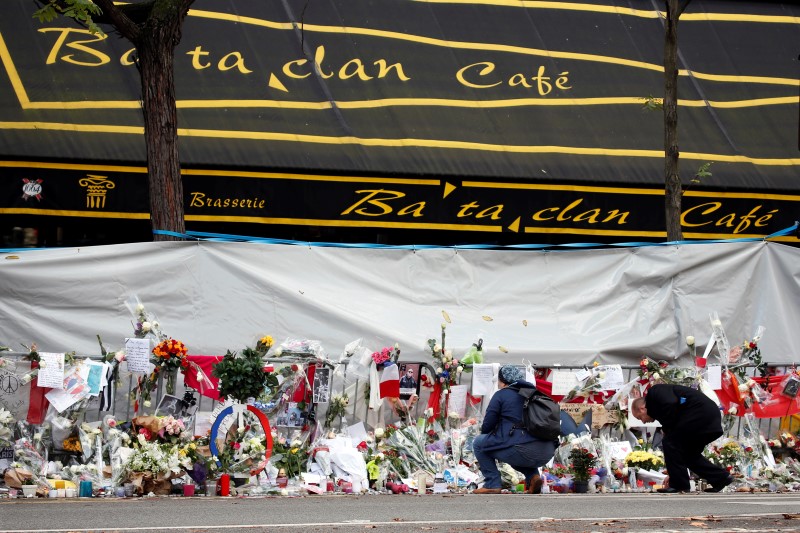By Gérard Bon and Marc Leras
PARIS/NIMES (Reuters) - Victims of last November's Islamic State assault on Paris plan to sue the French state for failing to avert a killing spree by militants who had drawn scrutiny from police and intelligence services, a lawyer for the group said on Tuesday.
Earlier in the day a court in a separate case found the French state partly at fault over the killing of a French soldier in 2012 by Mohamed Merah, a militant whose activities had also been tracked for some time by police and security services. Merah was killed in a shootout with police that year.
Samia Maktouf, a lawyer representing 17 victims of the Paris attacks, said she would take legal action against the state on the grounds that some of the assailants were also people the police and judicial authorities had been keeping tabs on.
"We will do all we can to get the French state convicted for failing to prevent terrorists, some of whom were under judicial surveillance, from carrying out their act," Maktouf told BFM TV.
Nine militants killed 130 people and wounded hundreds more on Nov. 13, 2015. Some assailants blew themselves up near the Stade de France stadium, others opened fire on downtown cafe terraces and a third group armed with guns and suicide vests killed 90 music fans at the Bataclan rock concert hall.
A parliamentary investigation into the attack ended with the publication of a report last week that highlighted, among other possible failings of the state, the fact that one of the Bataclan attackers had gone to Syria a month earlier despite being under surveillance over a 2012 trip to Yemen.
France has since cracked down on people suspected of going to war zones like Syria to train as jihadist combatants.
A French court last week sentenced several people who returned from one such sortie to between eight and 10 years in jail - including the brother of one of the Bataclan attackers.
In a ruling sure to encourage victims of the November attacks and others, a court in the southern city of Nimes on Monday judged the French state to have been partially at fault for the killing of soldier Abel Chennouf in 2012.
He was one of three soldiers killed that year by Merah, a 23-year-old who said he was inspired by al Qaeda and went on to kill four Jews, three of them school children, before being cornered in a flat and dying in a hail of police bullets.
The judge faulted the French state on the grounds that the police and intelligence services had decided at one point to stop tracking Merah.
"The decision to halt all surveillance of Mohamed Merah ... constitutes a mistake for which the state is liable, given the profile of Mohamed Merah and his highly suspect behaviour, notably after recent trips to Afghanistan and Pakistan," Monday's verdict stated.

The judge ruled that the state should as a result provide financial compensation to the wife, child and parents-in-law of the murdered soldier.